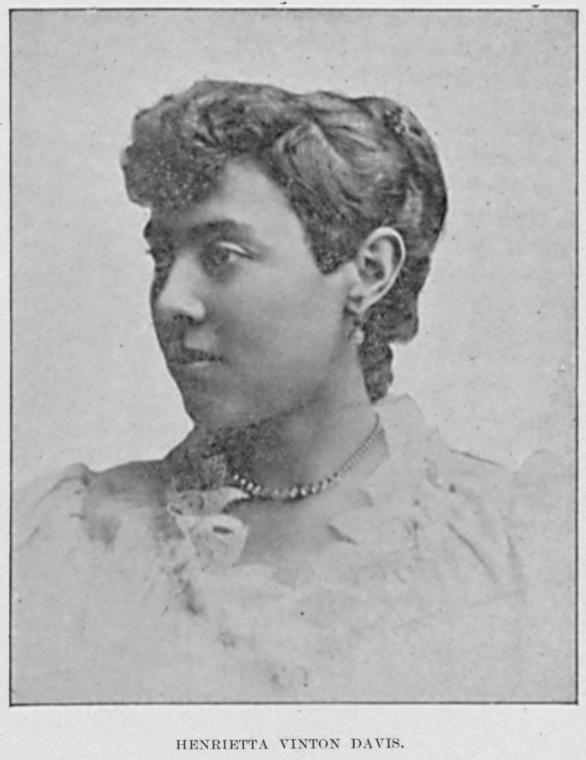Meet Henrietta Vinton Davis, a remarkable woman, who died on this date in 1941.

?w=300&h=300
 http://henriettavintondavis.wordpress.com/henrietta-vinton-davis-and-the-garvey-movement-by-professor-william-seraille/
http://henriettavintondavis.wordpress.com/henrietta-vinton-davis-and-the-garvey-movement-by-professor-william-seraille/
Historians study the past with its emphasis on personalities and events. Sometimes the great doers of past decades are remembered. More often, men and women of achievement, while important in their own times, are overlooked by historians. Such a person is Henrietta Vinton Davis who made a name for herself not only as a major elocutionist but as a leading exponent of Marcus Garvey’s “race first” concept.
Davis, who was born in 1860, was the daughter of Mansfield Vinton Davis, a talented musician, and Mary Ann (Johnson) Davis. As a young woman, she studied under Marguerite E. Saxon of Washington, D.C., Edwin Lawrence of New York City, and Rachel Noah of Boston, where she attended the Boston School of Oratory. During her late teens she taught school in Maryland and Louisiana. In 1878 she became the first black woman to be employed by the Office of the Recorder of the Deeds in the nation’s capital. It was in this capacity that she met Frederick Douglass who held the position of Recorder from 1881 to 1886.1
Davis’ oratorical abilities, which proved valuable to the Garvey movement, were first developed in the nation’s concert halls. A brief survey of her acting career is necessary before we examine her role in Garvey’s Universal Negro Improvement Association. Frederick Douglass, a life time friend, introduced her to the audience in her first dramatic appearance on April 25, 1883. Davis’ debut at Washington’s Marini’s Hall received a mixed review. “Our lady readers,” commented the editor of The Washington Bee, “has found fault with Miss Davis’ reading.” “There are none in Washington,” he added, “who can equal her in dramatic art.”
more...
https://pmatep5f7b.execute-api.us-east-1.amazonaws.com/ProdStage
 ?w=300&h=300
?w=300&h=300
